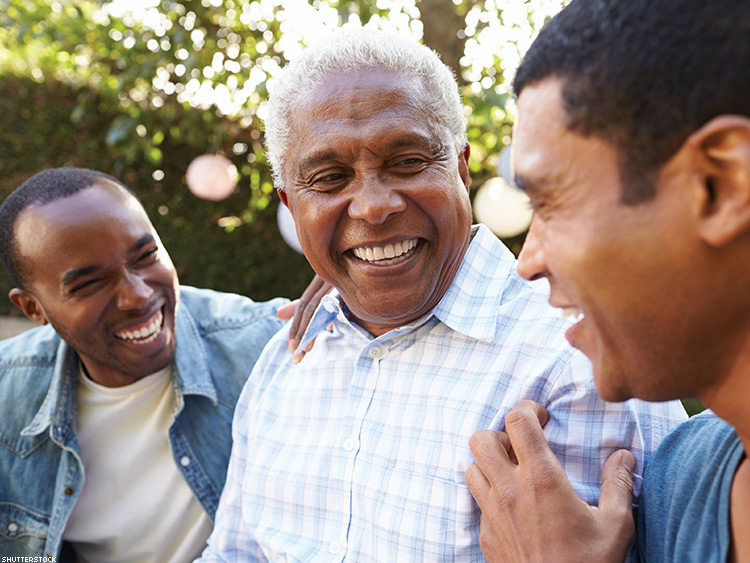It’s strange to think about, but when I was younger there were many more models I could define myself against. Now, as I approach my late 30s, I can appreciate the uniqueness of my path and experience, but also grieve the absence of those I once looked to as comrades and coconspirators.
I find myself in a singular place, the position of being a black gay activist at mid-career — if one can view “black gay activism” as a career. I suppose the more accurate description is that my activism has been my work, comprised not of a linear progression punctuated by milestones and promotions, but by projects and campaigns. Since so many of the black gay men I entered the movement with are no longer connected, I have recently felt a bit isolated. Too many of us burn out. And when we do, our communities suffer.
Looking for role models beyond my generation is also a difficult exercise. Most of the black gay men I admired died long before they reached the age I am now. I carry their stories with me, but their blueprints don’t offer much insight about being a black gay man in his 40s, 50s, or 60s. For me, this suggests the necessity for older black gay men to put pen to paper and share their stories.
I almost didn’t make it. Most of us don’t. The path from young activist to veteran is a hero’s journey. The lifespan of movement work for black gay men is relatively short. It’s hard. It’s wonderful, but it can be painful too. To work with black gay men is to constantly confront your own reflection. Your own vulnerabilities become so much more pronounced. You are not always greeted into the work with open arms. Elders haze you.
Despising yourself can be an occupational hazard. You must fend against it, at all costs. I’ve spent so much time convincing black gay men they should love themselves, and I have absorbed so many “black men ain’t shit” stories. Honestly, it takes a toll, even with the most resilient among us. Even I would be lying to say I haven’t internalized this at times. No one comes away from this work without collecting some scars. They might heal, but they never go away.
Trauma isn’t just passed down through biological families, but also through communities and movements. This is part of why it’s difficult to sustain black gay men in movement work. We have to imagine trauma-informed care, otherwise we run the risk of continually wounding each other.
There’s always a risk of self-destructing. Then we flee or leave the movement. The less lucky among us are ushered out, so to speak. I hope that my own transition will be intentional and rooted in love, but I do recognize that idea is ambitious considering the work I do.
We give so much that we nearly shatter ourselves into pieces trying to hold everyone else together. Movement administrators in particular — those of us who coordinate the meetings, host the events, and set up the conference calls — burn through our emotional bandwidth relatively quickly.
I am often asked by younger activists how I have survived so long. Most of us look triumphant. We tell about the victories, but not the vulnerabilities. The cost of standing alone is expensive beyond imagination. But as I’ve often said, when you are doing what’s right, you will stand alone (at least initially). There is no secret to coping, necessarily.
We take deep breaths in the car before we have to face the structural violence awaiting us in the spaces where we have to go, to fight for our people. We vent to our friends about how so-and-so tried this with us or how we almost flipped over the table at such-and-such meeting. We learn to wear beautiful, glorious masks. In the end however, movement work is a journey of personal transformation.
But first, we all must ask ourselves: Who do we want to transform into?

Contributing editor CHARLES STEPHENS is an Atlanta-based writer and activist. Founder and executive director of the Counter Narrative Project, Stephens coedited the anthology Black Gay Genius: Answering Joseph Beam’s Call, and his work has appeared in Georgia Voice, The Atlanta Journal-Constitution, Lambda Literary Review, Creative Loafing, and RH Reality Check, among others.
(@charlesdotsteph)















READER COMMENTS (